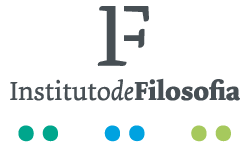Sessão 7 | Seminários de Investigação MLAG 2023/2024
From: 2024-02-14 To:2024-02-14
Thematic Line
Modern & Contemporary Philosophy
Research Group
Mind, Language & Action
Faculdade de Letras da Universidade do Porto
Sessão 7
A Non-Egological Consciousness
| Tássia Vianna de Carvalho (Universidade Federal do Rio de Janeiro)
Abstract: Consciousness, phenomenologically understood, is characterized by its transitivity towards its objects; this seems to be a point of consensus throughout the phenomenological tradition – beginning with the Descriptive Phenomenology of E. Husserl and finding its exponents in French Phenomenology, such as Sartre, Merleau-Ponty, Ricouer, among others. However, a widely debated theme to this day concerns the pole of emanation of our experiences. It is often questioned whether consciousness needs to have a necessary reference center from which our experiences emanate. This is the position adopted by Husserl after the development of phenomenology towards a Transcendental Phenomenological Idealism, with the publication of Ideas I (1912). This center would have the function of unifying and centralizing our stream of experience.
However, one could still question:
- Is it indeed necessary to resort to such an instance to justify the unity of our experiences?
- Is this instance still necessary for all experiences, or is it restricted to certain conscious acts of a specific type?
- Would a recourse to pure phenomenological data, in its original experience, truly reveal the presence of an immanent Ego pole in fact referred to all modalities of consciousness?
Such questions are the subject of controversial discussions within the phenomenological tradition, with their highlight in the essay The Transcendence of the Ego (1936) published by Sartre, defending the non-existence of an Ego pole necessary for the basic states of consciousness. Throughout our exposition, we intend to systematically address these questions, aligning ourselves with Sartre's position in which the Ego is not an inhabitant of consciousness but a product brought about by reflexive modification, revealed as if it were there prior to reflection.
Keywords: Phenomenology, Egology, Intentionality, Reflexive Modification
Short Bio: Tássia Vianna de Carvalho is PhD Student at Federal University of Rio de Janeiro, having a bachelor's and teaching degree in philosophy from the Fluminense Federal University. She is an actual member of the Contemporary French Philosophy Working-Group of the Nacional Association of Post-Graduation in Philosophy in Brasil (ANPOF), developing research in the fields of phenomenology and existentialism.
Seminários de Investigação MLAG 2023/2024:
https://ifilosofia.up.pt/activities/seminarios-de-investigacao-mlag-2023-2024
Organização:
André Silva
Avelino Costa
João Faria e Silva
José Xarez
Marcondes Rocha Carvalho
Ricardo Serrado
Sâmara Costa
(Estudantes de doutoramento de Filosofia da FLUP)
Mind, Language and Action Group (MLAG)
Instituto de Filosofia da Universidade do Porto – FIL/00502
Fundação para a Ciência e a Tecnologia (FCT)
